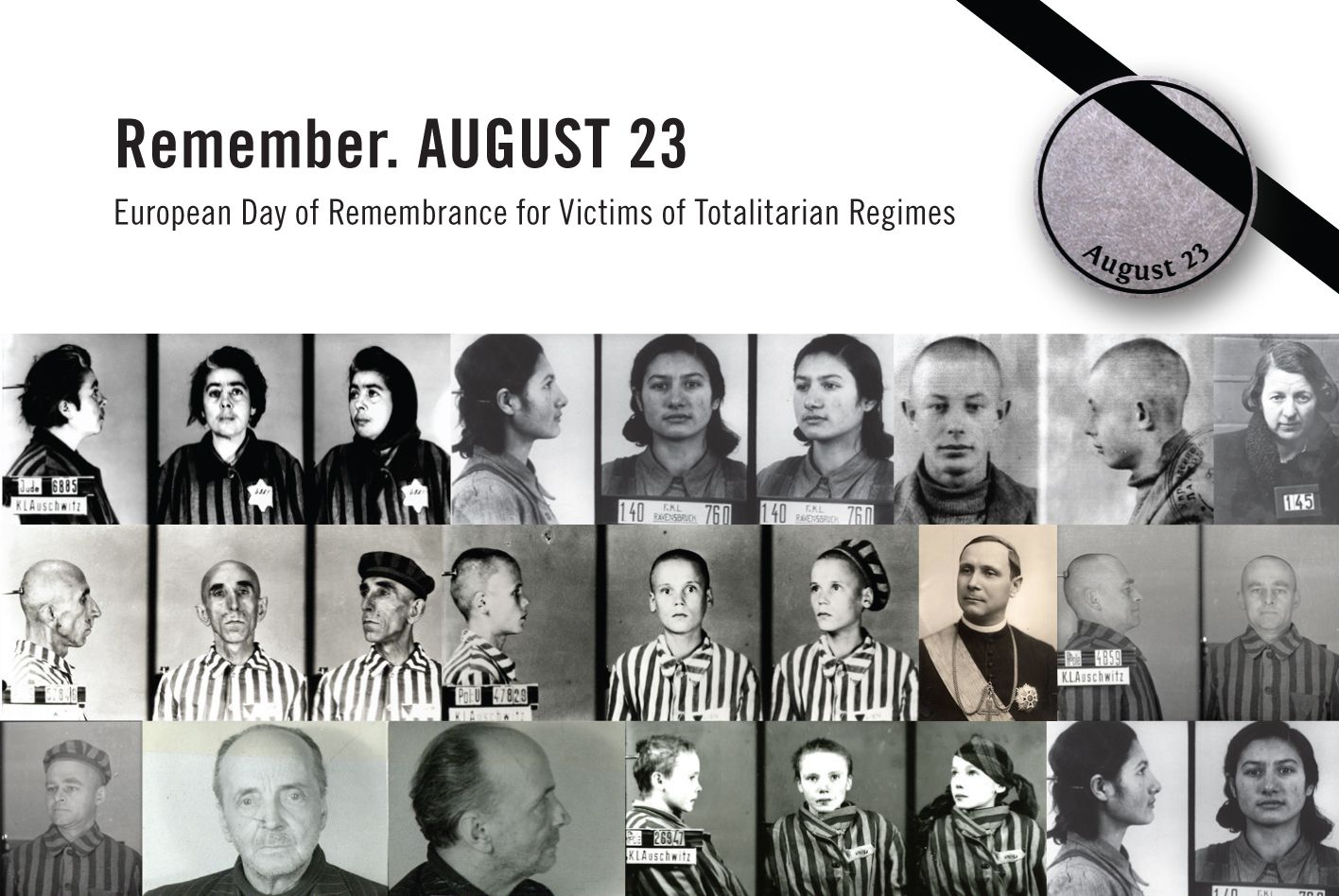On 23 August, on the anniversary of the Molotov-Ribbentrop Pact, the European Day of Remembrance for Victims of Totalitarian Regimes is observed. It was on that day in 1939 that an agreement between Nazi Germany and the Soviet Union opened a road towards the tragedy of the second world war and its consequences: concentration camps, gulags, Holocaust, crematoria, labour camps, and many years of the cold war and further criminal regimes. On 23 August, all those are remembered whose deaths were a consequence of the crimes perpetrated by Nazism and Stalinism. The European Network Remembrance and Solidarity supports making a symbolic gesture of remembrance by sharing and wearing a special pin with the inscription “Remember. August 23”.
23 August brings back the memory of millions those who fell victim to totalitarian regimes, primarily inmates of concentration camps, death camps, Soviet gulags and Stalinist prisons. An outer representation of this remembrance can be wearing a pin with a mournful black band, prepared on the initiative of the European Network Remembrance and Solidarity. Each and every of the millions of victims had his or her individual history recalled by the identification portraits of inmates featuring on the graphic images which accompany the campaign.
Anyone wishing to obtain such a pin can place the order via enrs.eu/august23. The site features also information on individual victims whose photographs have been used in the information materials as well as an electronic version of the pin. The organisers support sharing that symbolic sign of remembrance, and – by doing so – joining a long-term campaign aiming to make sure the date of 23 August is perceived by Europeans as a symbol of remembrance for victims of 20th-century totalitarian regimes.
The European Day of Remembrance for Victims of Totalitarian Regimes was proclaimed by the European Parliament on 23 September 2008. Its objective is to commemorate victims of mass deportations and exterminations as well as to secure democracy and strengthen peace and stability in Europe. The first-ever ceremonial observance of the Day took place in Warsaw in 2011. In the “Warsaw Declaration” signed then, the signatories highlighted the need to make Europeans remember the criminal consequences of totalitarian regimes and called upon the European Union to study and compile documentation related to the crimes committed by such regimes. During successive years, public commemorative events attended by justice ministers of EU Member States have taken place in Hungary, Lithuania and Latvia. In 2015, they took place in Estonia.
